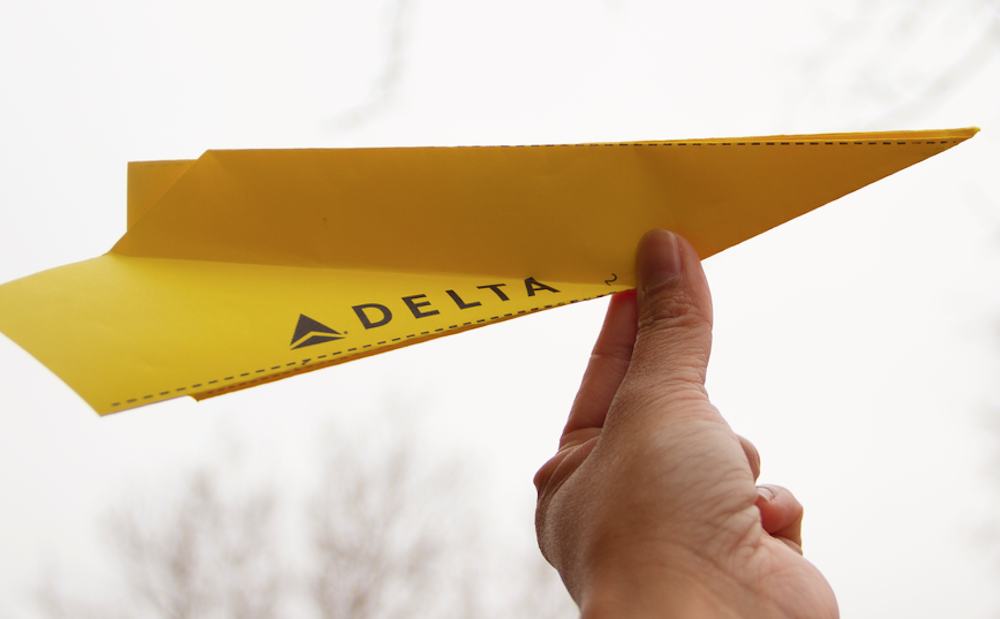
In the words of David Bowie, “Ch-ch-changes” are a comin’. Actually, they’re already here: in the last few weeks, airline travel has taken major steps in becoming more digitized.
For starters, Emirates will require most of its passengers departing Dubai International Airport to use mobile boarding passes instead of printed ones.
“This initiative will significantly reduce paper waste while simultaneously offering a convenient and speedy digitized check-in experience for passengers departing Dubai,” the company said in a release. “It reduces the risk of lost or misplaced boarding passes, giving passengers peace of mind when traveling.”
Emirates passengers who check in in-person at the airline’s hub at Dubai’s Terminal 3 will now receive a mobile boarding pass either by email or text instead of a paper pass. Those who use online check in will be able to access their passes via the Emirates app, with the option to load them into either Apple Wallet or Google Wallet. Additionally, checked baggage receipts, traditionally printed and handed to the passenger upon dropping off luggage, will also pop up on the app, or be sent via email.
At every step where a boarding pass may be required, whether it’s going through security clearance, boarding the plane, or even shopping in Dubai Duty Free, the mobile pass will be accepted, as agents will simply scan the QR code.
The move is meant to be a “a step forward in its drive to offer customers the convenience and assurance of digitally enabled travel journeys,” the airline added.
Of course, the bold move does bring forth the concern of numerous digital hiccups, all of which Emirates is sympathetic to. Whether your phone runs out of battery, you can’t connect to Wi-Fi, there are issues with accessing a phone network or international data package, there’s a delay with the pass being delivered, or there’s a system glitch, then there’s always the option to ask a Emirates agent to print out a physical pass.
The airline is also cognizant of the fact that there will be situations where printed boarding passes will be needed from the start—with one of the biggest exceptions being for all passengers traveling on flights to the U.S. Others who can opt for paper passes are those with onward flights on other carriers, as well as those with special situations, like passengers traveling with infants, children traveling alone, and anyone who requires special assistance.
And Emirates isn’t the only airline going digital: Alaska Airlines may have introduced the ubiquitous airport check-in kiosks 20 years ago, but now the airline is giving them the boot.
With the goal of making airport check-in more efficient—streamlining the process so that travelers move from the lobby to security quickly—the airline has officially announced plans to replace the kiosks with a new mobile self-service system. This means no more time waiting at the check-in desk or dealing with the hectic swarm of people surrounding kiosks.
“We realized the majority of our guests were doing most of the kiosk actions on their own phones, and we could reduce the congestion in our airports,” Charu Jain, Alaska Airlines senior vice president of innovation and merchandising, said in a recent statement.
With this new process, passengers will check in online, grab bag tags from iPad-based stations and drop luggage on a self-service bag drop. Bag drop stations are already active at eight of the airline’s main airports; the kiosk phase-out and bag drop implementation is expected to be complete by the end of 2024.
Passengers not down with all the DIY technology will not be left out in the cold, however, as Alaska Airlines will have the option of a full-service check-in with an agent.


 Save up to 60% on Business Class. Call 1-800-435-8776
Save up to 60% on Business Class. Call 1-800-435-8776
Leave A Comment